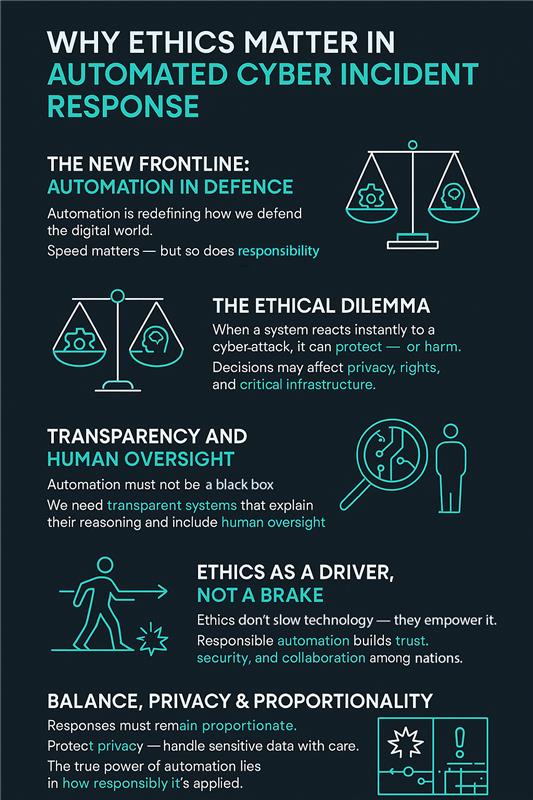3rd EU-GUARDIAN NEWSLETTER
October 2025
🚀 In future editions, we will launch a series of Reflections on the integration of AI in cyber defence, in which we will explore the ethical, legal and technical dilemmas that will shape the future of digital security in Europe. A critical and strategic look at how to build a more reliable, responsible and prepared cyber defence system in the face of the challenges ahead. From data to decision: ethical and technical challenges of AI in cyber defence
Automation is already redefining how we defend the digital world.
Today, the ability to respond quickly to a cyberattack is essential.
Automated systems can act in the blink of an eye, but that also leads us to a crucial question:
how do we ensure that such rapid decisions remain responsible and ethical?
When a machine chooses how to respond, it is not simply a matter of executing a technical command.
Its decision can impact privacy, violate people's rights, or even compromise the security of critical infrastructure.
That is why it is imperative that these systems be transparent,
that they disclose the decision-making process,
and that they have human oversight when necessary.
Ethics does not stop technology; it drives it forward.
By creating automated systems under clear principles, we gain greater trust, security, and effectiveness.
And if countries share common ethical standards, we avoid misunderstandings and collaborate more effectively.
It is equally crucial that responses remain proportionate;
not every attack deserves an excessive reaction.
Furthermore, privacy must be safeguarded, as sensitive data is often processed.
In short, automation is useful,
but the real difference is made by the responsibility with which it is carried out.


‘Funded by the European Union. The opinions and views expressed are, however, solely those of the authors and do not necessarily reflect those of the European Union or the European Commission. Neither the European Union nor the granting authority can be held responsible for them.’
EU GUARDIAN- EDF-2021-CYBER-R-CDAI-2